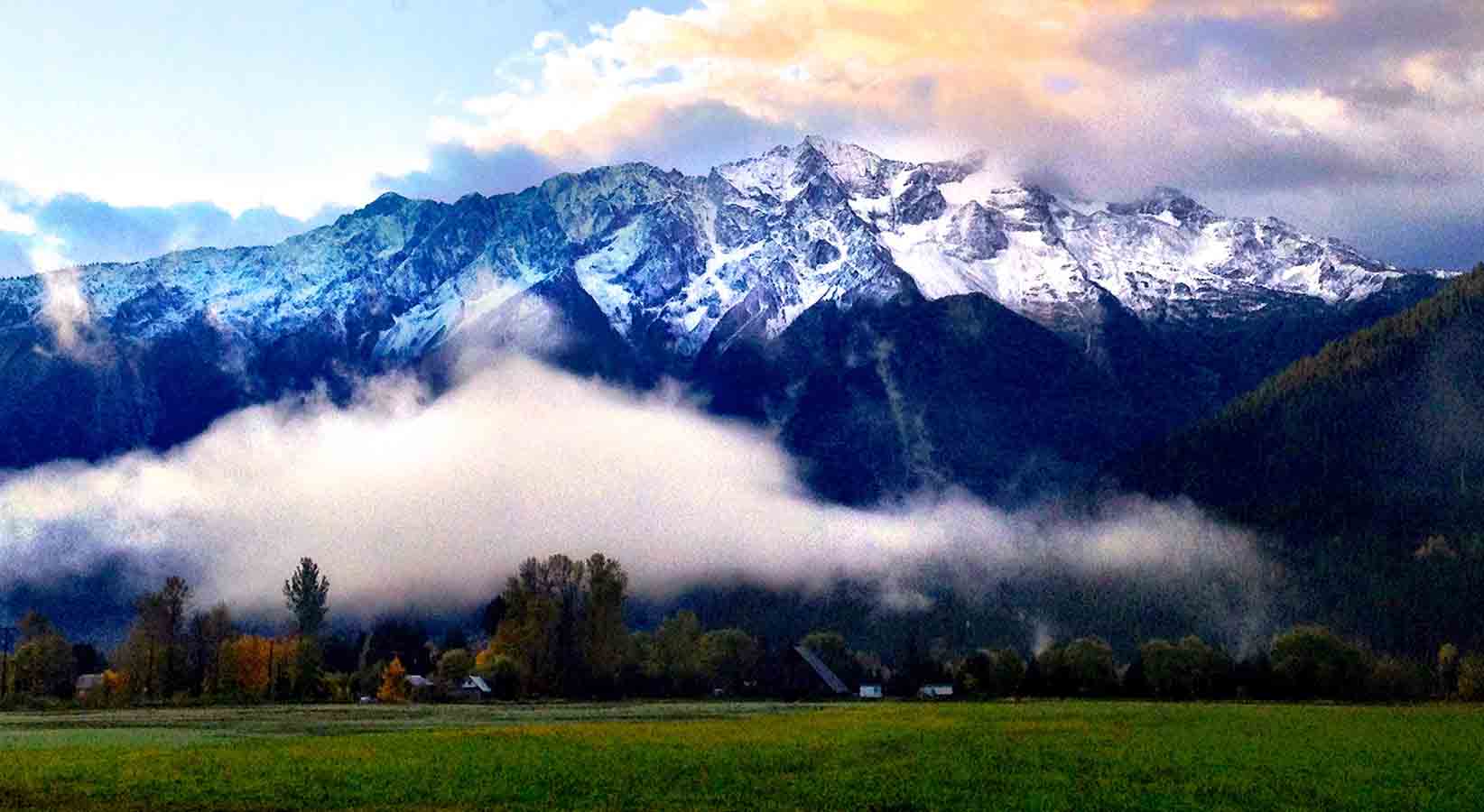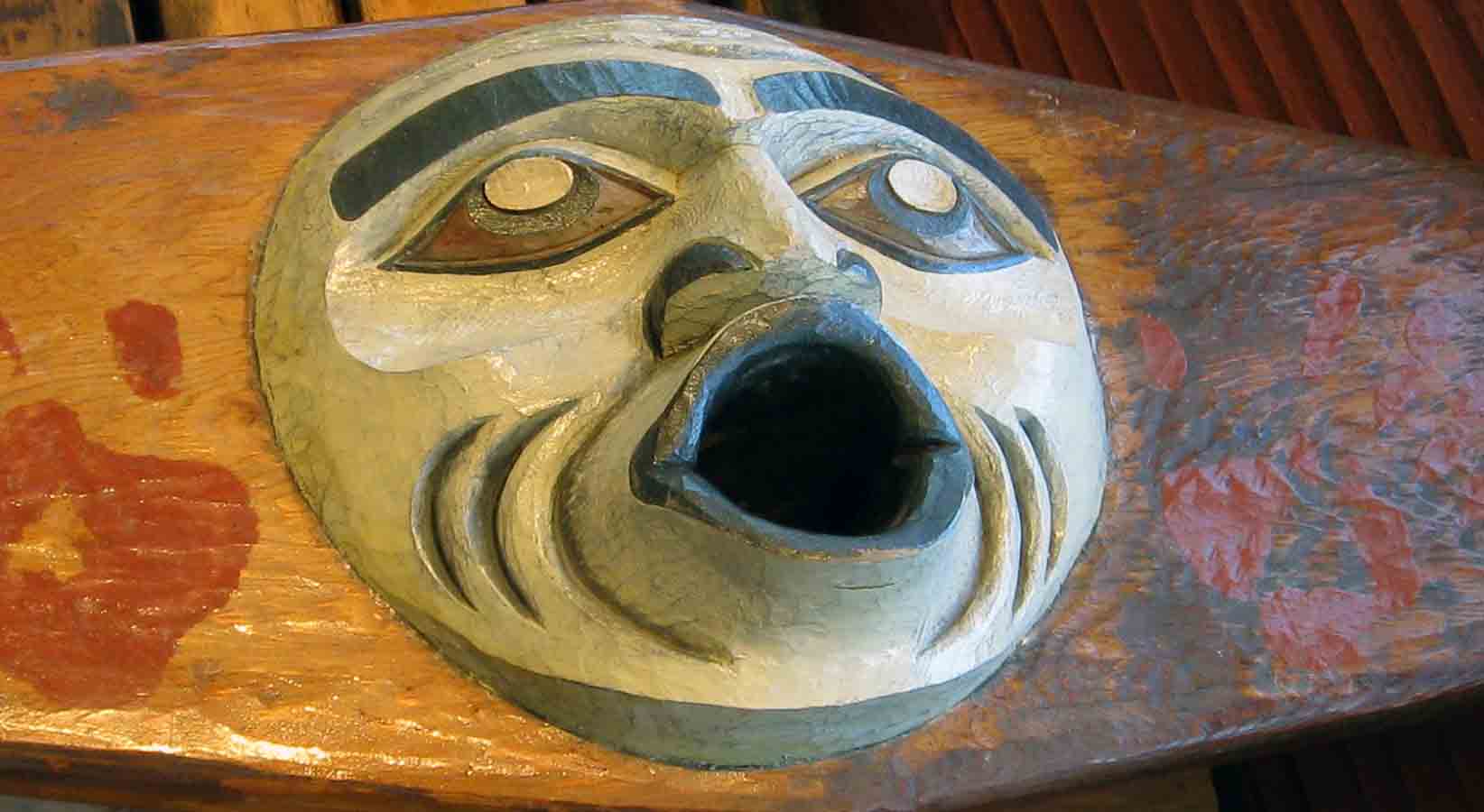Mount Currie

by Amanda Walker, Ts’zil Learning Centre (TLC)
Small Business and Entrepreneurism in Indigenous Community
“Going to the mountains is going home.” John Muir
From the Trans-Canada Highway 1 I exit left toward Highway 99 North, the minute I make that left toward home, tension leaves my body. After 14 years in the mountains, the stimulation of the city overwhelms my senses. The stretch of land between Horseshoe Bay and Pemberton, BC is called the Sea-to-Sky Highway. Perhaps one of the most beautiful drives in the world, this area is a place which takes a hold on people. Highway 99 passes through the traditional unceded territory of the Squamish into the territory of the Lil’wat and the St’at’imc First Peoples. I came to live within the traditional territory of the Lil’wat on November 9, 2006.
I arrived here in a way that is similar to many; my husband and I were expecting our first baby and thought raising our children in a ski town would be fun. Born on Vancouver Island, I moved several times as a child and at 14 my American parents moved our family to Houston, Texas. I spend the next 14 years living in large cities in the United States and Canada. At the time of my son’s birth in 2006, my husband and I were living in Toronto. Since graduating from university five years prior, I had been working for a labour union. I was ready to leave the grind and pressures of activist work. My husband had always enjoyed the chill, slow-paced life of a ski town, so we set our sights on Whistler; after a look at the cost of housing we settled on Pemberton, BC, a village with a population of 1500 people. Six weeks after our son was born, we arrived in Pemberton, sight unseen. Having spent my formative years in cities, I can remember being afraid of the mountains. At the time, I did not know I was arriving in the Lil’wat Territory, and I did not have a concept or understanding what it meant to be a settler on this land.
The Sea-to-Sky corridor refers to a 137 km stretch of highway, which includes Horseshoe Bay, Squamish, Whistler and Pemberton, characterized by its incredible beauty and work abundance. The region has more jobs than workers to fill them. Whistler, home to Whistler Blackcomb, is one of the largest ski resorts in North America. Employers depend heavily on foreign labour from the UK, Australia, and Japan to fill these positions.
Mount Currie is a reserve located two and half hours north of Vancouver. It is a remote community situated seven minutes north of Pemberton and 35 minutes north of Whistler. Mount Currie is currently home to 1300 Lil’wat. In this piece, I will refer to Mount Currie as Lil’wat or the territory or Nation. I have worked with the Lil’wat First Nation for close to a decade, initially, as an Educational Assistant at Pemberton Secondary School and later when I gained employment at the Ts’zil Learning Centre (TLC) as an Indigenous Education and Career Facilitator. Ts’zil Learning Centre is owned and operated by the Lil’wat Nation, and offers a variety of programs which include academic upgrading, post-secondary academic, trades, and training opportunities for adult learners eighteen and older.
Where the Sea-to-Sky corridor has low unemployment rates, Lil’wat continues to see higher unemployment in comparison to surrounding communities. The Lil’wat Employment and Training department receives funding from Service Canada to address unemployment and underemployment, and yet, unemployment persists. This phenomenon was so curious to me, and through this project, I set out to understand what was happening within the communities in Lil’wat and the St’at’imc Territory.
My discovery was fascinating. While many people may not have traditional employment, a whole economic system operates beneath the surface. One does not have to look very far in the territory to find someone running their “side hustle.” These businesses range from selling crafts and Avon, to selling slices of pizza on the Mount Currie Buy and Sell page on Facebook. I would guess that most families have some small businesses operating out of their home. As an Indigenous Education and Career facilitator and in other roles working within the territory, I have had the privilege of learning about these businesses and will share the story of three people who are described under pseudonyms: Penny, Sara and Jason.
Penny Wilson
In March 2020, Penny lost her position as Elders Liaison Worker after her employer, the Southern St’at’imc Health Society, lost its funding for her job. She was in her role for four years and loved the work. “I never understood why people didn’t like going to work. I loved my job.” Penny drove elders from four remote communities to their medical appointments in Lil’wat, Pemberton, Squamish and Vancouver. Because many of her clients did not have the opportunity to leave their small communities very often, they would always make a day of it. She would stop to shop and run errands or to grab lunch at a favourite spot.
Penny was gutted when she lost her job. Her job loss coincided with the beginning of the COVID-19 global pandemic. While her husband continued to work, they were dependent on two incomes. Her Employment Insurance barely covered their expenses, and she got behind on payments for her son’s braces. The financial pressures and inability to support the family took a toll on her mental health. Penny is also a woman who is always on the go. Her son plays soccer in Vancouver, and she’s used to being busy and productive.
COVID-19 put an end to soccer, and Penny entered a depression. She came to me in September to discuss her idea for a small business. Initially, we had a conversation about small business in general, and after several meetings, her vision started to take form. She wanted to be her own boss and to give back to the community. She started paying attention to the problems in Lil’wat and the surrounding Indigenous communities and realized there was a real need for a driver. Many people within the community do not have cars, a driver’s licence or the ability to pay for car insurance. Public transportation in the area is practically non-existent. While there is a commuter bus, it runs infrequently and is inconsistent. There is one taxi service operating between Pemberton and Mount Currie; however, it is expensive. Many people favour hitchhiking, yet folks were having difficulty getting picked up amid the pandemic. For these reasons, Penny started offering rides to people in need and charging them a small fee. She would post on the community Facebook page when she was available for hires and to run errands for folks when she headed into Pemberton.
As Penny’s business slowly gained momentum, a tragedy took her off course. On October 22, 2020, two men from Lil’wat went missing while mushroom picking. In the fall, many Indigenous people go mushrooming as a way to make extra cash. Immediately Penny put her life on pause. She set up a Facebook page to support the rescue and to help coordinate the search efforts. Within 24 hours, she had 1200 followers. Because all people within Lil’wat are connected, this incident shut down the community for seven days while they searched for the men.
I include this story because employers outside of Indigenous communities may not understand why an employee would take three weeks off work to search and grieve for a person who is not an immediate family member. Penny, who is at present her own boss, did not have to choose between her employer and her need to support the community.
Sara Jackson
I met thirty-year-old Sara Jackson in September 2020, when she came to discuss her ambition to start a small business. As the Education and Career Facilitator at the Ts’zil Learning Centre, community members often inquire about entrepreneurship and small business start-up programs. Sara, a wife and mother of two boys aged sixteen and three, had her first baby at just sixteen years old. Without adequate child support, Sara left high school to care for her child. While she has does not have a high school diploma, over the years, she has taken advantage of the Nation’s training opportunities, including a Building Services Certificate and an Introduction to Cooking program.
Currently employed as a cleaner at the Band Office, Sara longs for more. “I don’t want to be a cleaner for the rest of my life. I want more for my family. Finding work in Lil’wat is difficult – there can be a lot of job opportunities but yet some you don’t advance in the business, or they’re only seasonal jobs which makes it tough in the winter.” Transportation and wages make it challenging to work outside of Lil’wat. “Transit has always been an issue … you don’t get paid enough to make the trip with bus fare, lunch and a babysitter. It’s two hours on the bus to Whistler and two hours back home.”
Sara dreams of starting a home-based meal delivery service. With rich and fertile soil, the Lil’wat Territory is a producer of some of the province’s most beautiful vegetables. Using local produce and beef, Sara is committed to creating healthy meals for her community. In recent years, she has perfected her baking skills, and her love for food comes through when she speaks of baking bannock, loaves of bread, and desserts. “Since I was a child, I always wanted to be an entrepreneur … even more as a struggling teen mom. Scraping by and handing out resumés from Mount Currie to North Vancouver, I work hard and go to school to create a business for my Nation, to help those struggling and to find work close to have career at Lil’wat.” For Sara, starting a business is about more than making a better life for her children; it is about building capacity within the Nation. This is a sentiment echoed the majority of Indigenous entrepreneurs I speak with, their desire to build and grow their business is related to lifting up the community.
Jason Jones
Jason may be one of the most interesting clients I have worked with to date. He is a 31 year old man from the N’Quatqua First Nation which is located 35 kilometers north of Mount Currie. With red and black tribal tattoos on his face, his hair cut into a mohawk, he looks like a warrior. Exuding kindness, there is nothing tough about this guy. Jason, a descendent of warriors, has always felt a deep connection to his ancestors. In 2007, he felt a calling to create traditional tomahawks and arrows. He sold his first warclubs to the N’Quatqua First Nations and, they were given as gifts to the visiting St’at’imc chiefs. When he is not creating, he works at the local steelhead farm. While he has worked there for six years, he’s lucky to get a few days a week. “Three years ago, we had 800 lbs of fish orders and now it’s 300 lbs.”
To supplement his income, Jason sold his work on the powwow circuit. As a vendor, he sold his war-head clubs, medicine bags, chest plates, necklaces, and Indigenous movies like Dance Me Outside and Smoke Signals. “I buy the movies for the people because they like those movies, and they’re hard to find. I make a tiny profit, but I buy them for the people, and they are so happy to have them”.
This year, Jason was hit hard by the global pandemic. The powwows were suspended and with that he lost the ability to make money. Jason needed support to find a new market for his crafts. Living remotely without access to a vehicle, created an additional barrier to selling his work. Together we looked at ways to move his business to an online platform. Watching him operate a computer was concerning and I worried about his digital literacy skills, but like many of my clients, he can operate his smart phone like a pro. Within a few weeks, he had an eBay account and started posting his work online. Jason had an established following on social media and was comfortable making the shift to online sales. For many, COVID-19 created new opportunities and Jason is one of those people. Because he reached out for help, he was able to make the shift and once the pandemic ends, he will be able to grow his business.
In October, I was confronted with another reality. I knew one of the men who went missing. I met him when I was an Educational Assistant, and he was a student in a grade nine science class. I watched him grow into a man with a beautiful, gentle soul. I sat in a drum circle at Ts’zil the week of the search; I looked around and recognized that many of my colleagues had lost brothers, fathers, husbands, and children. A loss in the community has a ripple effect that cannot be measured. A Lil’wat colleague said of the events, “Yes, the surrounding communities came and supported us. They searched and delivered food, but they do not understand the collective grief and trauma within our territory. They don’t understand that while these men may not be our brothers, they represent all of what we have lost.” I do not have this lived experience and my privilege has protected me from this deep trauma.

Final thoughts
“The mountains are calling, and I must go.” John Muir
This project has enabled me to look at my work with a new lens. Indigenous Peoples are inherently displaced workers due to colonization. For over 150 years, they have been trying to fit into a system which was not set up for them to thrive and yet when one takes a closer look, one will see an intricate ecosystem of business that exists. In order to turn these “side hustles” into flourishing businesses people need support, digital literacy, basic bookkeeping, a community of people with a common goal and person-centred wrap around. Penny, Sara and Jason would all benefit from a fundamental small business bridging program.
Reflecting on my work over the years I am left with a few thoughts. There are times when I leave my community to work in Lil’wat and I feel like an outsider. As a woman with significant privilege, I rarely have the opportunity to feel uncomfortable. When leaving Mount Currie to work outside of community, many Indigenous people have to leave who they are. They are forced to adapt to a new culture, to be on guard and be careful. Working within the community, I have witnessed the “lift.” The lightness that comes when people are free to be themselves.
I moved to Pemberton to raise my children. I still do not ski, nor mountain bike, and when the snow comes, I am mildly irritated until its majesty captures me. My son Sam, who was born with a rare disease, is a person with special needs. Diagnosed at two, my husband and I divorced a year later. There were times when I contemplated leaving and moving closer to my family; however, I could not imagine Sam growing up in another place. At four, I enrolled him at the daycare in Lil’wat. The teachers and staff embraced him and treated him with love and care. He continues to have a deep connection to Lil’wat.
I am grateful to be welcomed to work in Lil’wat and within the St’at’imc Territory. It is a privilege to learn alongside students like Penny, Sara, and Jason and share our collective knowledge. Through colonization, they have been displaced and yet continue to move forward. The resilience showed by each as they navigate the global pandemic and losses within the community is a testament to their commitment to building a sustainable economy within the Nation and a pathway to self-governance.
